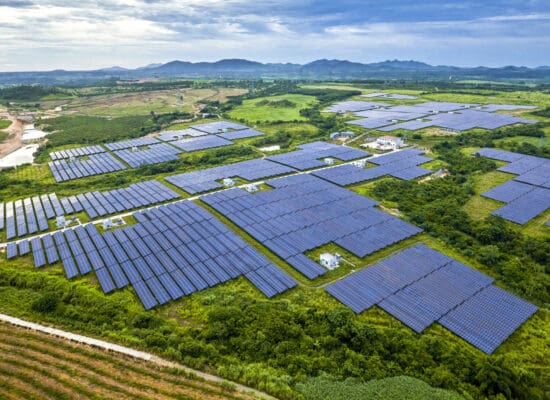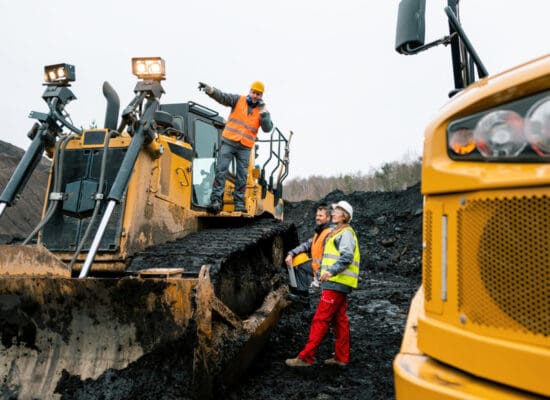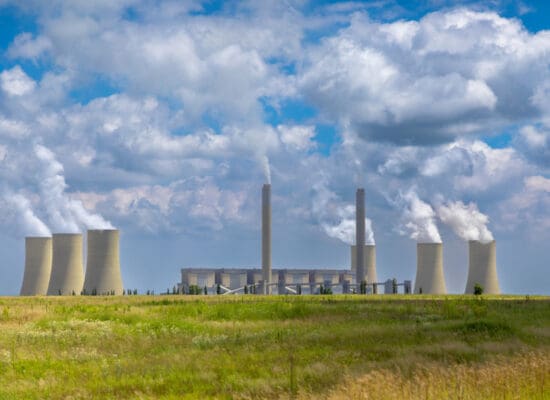Latest just energy transition news
As Malaysia cuts fossil fuel jobs, how can workers prepare for the energy transition?
A recent report by environmental non-profit Klima Action Malaysia reveals that Malaysia’s workforce is largely unprepared for the energy transition. As only 6% of the workforce is unionised, most workers are concerned about economic issues, such as wages. This follows an announcement made by Malaysia’s state oil and gas company, Petronas, earlier this month to “rightsize” its workforce in light of troubling economic outlooks. The report further recommends a national workforce readiness assessment as well as upskilling programmes to address these challenges; for instance, by better utilising the Human Resources Development Fund.
U.S. companies seek relief from coal clean-up rules
Shortly before Donald Trump’s return to power, 12 U.S. utility companies, including Duke Energy and Vistra, urged Lee Zeldin, candidate for chief of the Environmental Protection Agency, to drop the agency’s legal defence of the Legacy Coal Combustion Residuals Rule, posing a risk to health and the environment. Originally developed under President Barack Obama but only enforced under President Biden’s administration, the rule requires utilities to clean up coal ash sites that contaminate groundwater.
Colombia's Decarbonisation of the Amazon project introduces solar-powered boats in Putumayo
The Decarbonisation of the Amazon project in Colombia’s Putumayo region is bringing solar-powered boats to Puerto Guzmán and Puerto Asís, reducing environmental and economic burdens by replacing diesel engines. Led by Fundación Paz y Reconciliación and Fundación TEJ, the initiative includes educational programmes to empower communities with knowledge about sustainable energy, thereby promoting autonomy, ecological protection, and a just energy transition.
South Africa confirms U.S. withdrawal of USD 1.5 billion Just Energy Transition Partnership pledge
South Africa’s presidency has confirmed that the U.S. has withdrawn from the country’s Just Energy Transition Partnership (JETP), to which it had pledged USD 1.5 billion in grants and commercial loans. The withdrawal, communicated by the U.S. Embassy on 28 February, reduces the total remaining JETP pledges to South Africa (from the likes of the European Union, France, Germany, and the UK) to USD 12.8 billion.
Indonesia's coal consumption to peak no earlier than 2037
Indonesia’s coal consumption will not peak before 2037, with coal-fired power generation expected to exceed current levels by over 60% according to Ember. Driven by rising energy demand, Indonesia plans to add 26.7 GW of coal-fired capacity by 2031, most of it so-called captive thermal power plants launched by industrial enterprises for their own needs. As a result, demand for power-generating coal will rise from 183 million tons in 2024 to 298 million tons in 2037, which is still far lower than production levels in 2024 (800 million tons).
GenZero and Mizuho Bank join forces to help Asia quit coal
In Singapore, Mizuho Bank and Temasek-owned investment firm GenZero have signed a memorandum of understanding to develop transition credits aimed at accelerating the early retirement of coal-fired power plants in Asia. This is one of the first private sector collaborations of its kind. Transition credits are financial instruments that quantify the carbon emissions avoided by shutting down coal plants ahead of schedule, allowing plant operators to sell these credits in carbon markets to fund the transition to cleaner energy sources.
Vietnam plans to stop two coal-fired power plants by 2030, all inefficient ones by 2040
Vietnam plans to close two coal plants by 2030 and phase out inefficient ones by 2040 under a decision signed by the prime minister. The 440-MW Pha Lai and 100-MW Ninh Binh plants will shut down if they are still unable to adopt new technologies or reduce emissions. To meet its target of 29.2–37.7% renewable energy by 2030, Vietnam will co-fire biomass and ammonia as well as installing carbon capture systems. It will also stop approving new coal power projects.
Coal's last stand? U.S. power plants face a mass exodus in 2025
In 2025, U.S. power generators plan to retire 8.1 GW of coal capacity, doubling the 4 GW retired in 2024. Concurrently, 63 GW of new capacity—primarily solar, wind, and battery storage—will be added, reflecting a 30% increase from 2024. While policies under the new Trump administration may temporarily bolster coal, experts anticipate this impact to be short-lived due to economic and environmental factors. However, the data centre boom in the U.S. has already led to delays in retiring coal and gas plants.
Granting of mining licences to universities cancelled following protests in Indonesia
After protests were held over ethical concerns, Indonesia has revised its Mineral and Coal Law to cancel mining business permits (IUPs) for universities. Previously, IUPs were granted through auctions only, but the revision now allows the government to directly prioritise cooperatives, small and medium-sized enterprises, and religious organisations. Universities will not directly manage mines, but they may receive financial benefits from state-owned or private enterprises managing the sites.
Fisherfolk and social leaders in northern Peru discuss just energy transition in Chiclayo
In late February, anglers and social leaders from northern Peru gathered in Chiclayo to discuss the impact of hydrocarbons on marine-coastal ecosystems and the need for a just energy transition. Organised by CooperAcción, the event featured expert presentations on climate change, oil spills, and sustainable alternatives. Participants drafted a public declaration calling for economic and environmental reforms to protect the ocean and promote clean energy initiatives.
China starts new coal plants, jeopardising its climate goals
China began construction on 94.5 GW of new coal power plants in 2024, accounting for 93% of global coal plant development that year. This reflects a regional preference for coal-based energy that goes beyond immediate need, despite cheaper and cleaner alternatives being available. This risks reinforcing fossil fuel dependence and undermining China’s goal of peaking carbon emissions by 2030. Updating its emission reduction targets as part of its upcoming next 5-year plan will therefore be crucial.
Western Australia's 2030 coal phase-out in doubt over concerns renewable energy projects are behind target
Western Australia’s 2030 coal phase-out plan is at risk due to delays in renewable energy, storage, and transmission projects. Synergy, the state-owned electricity provider, has already allocated nearly 90% of its AUD 3.7 billion budget to wind and battery projects, yet it remains 400 MW short of its battery target and 500 MW behind on its wind-generation goals. Transmission upgrades are also lagging, with industrial consumers facing a connection fee of AUD 100,000 per MW, sparking criticism that it will drive away investment.
Germany has taken over U.S. leadership role for Indonesia's JETP, says climate envoy
Germany has assumed the United States’ leadership role in Indonesia’s Just Energy Transition Partnership (JETP), following the U.S. withdrawal from the Paris Climate Agreement under President Trump. Special Presidential Envoy for Climate Change and Energy Hashim Djojohadikusumo confirmed this transition after meeting with a German delegation. With one of the largest bilateral project portfolios in Indonesia’s energy transition, Germany is further deepening its involvement as co-lead of the JETP.
USD 15.5 billion Just Energy Transition Partnership picks eight projects in Vietnam, funds not yet disbursed
Vietnam’s Just Energy Transition Partnership (JETP), launched in December 2022 to mobilise USD 15.5 billion for the country’s green transition, selected eight projects in 2024. However, implementation faces challenges, as noted by United Nations Development Programme Resident Representative Ramla Khalidi during a meeting with the Ministry of Industry and Trade. Despite the selections being made, no funds have yet been disbursed. In 2025, the JETP will continue monitoring projects for potential collaboration.
UK Prime Minister to make GBP 200 million investment in Grangemouth, launches training guarantee for refinery staff
Following several previous funding commitments, the UK government has announced a GBP 200 million investment from the National Wealth Fund to support the transition of Scotland’s Grangemouth refinery, which is set to close this year and will affect more than 400 workers. The new funding aims to attract private investment and to repurpose the site for low-carbon industries, such as biofuels and hydrogen. A “training guarantee” will help refinery workers gain new skills for jobs in clean energy sectors.
Colombia wants offshore wind projects but must fine-tune details, say experts
Colombia is aiming to develop 50 GW of offshore wind capacity, doubling its current electricity generation. However, experts say the Ministry of Environment must refine regulations to address environmental and social impacts, highlighting gaps in draft guidelines. These gaps include risks to marine ecosystems and fishing communities, potentially leading to conflicts with Indigenous groups. Clear rules on biodiversity protection, compensation for affected communities, and prior consultation processes are essential for ensuring sustainable development and local acceptance.
Opinion: Indigenous peoples and just energy transition
Indigenous Peoples must be central to Southeast Asia’s just energy transition, because over 54% of transition minerals and much renewable energy potential lie on their lands. Mining and energy projects often violate Indigenous rights, which is prompting demands for Indigenous-led renewable solutions. A 2023 regional conference called for community-owned energy initiatives, backed by governments and investors. Successful mini-hydro and solar projects show how Indigenous leadership can drive clean energy while protecting livelihoods and biodiversity.
Opinion: Indonesia's energy transition needs a decentralised approach
Indonesia’s energy transition is being hindered by centralised decision making, which prioritises large-scale projects and state-owned enterprises, slowing the deployment of renewable energy. As a result, renewables account for less than 15% of the energy mix, far from the 2025 target. A decentralised approach—with small-scale renewable projects, rural energy access, and community participation—could improve resilience and equity, accelerating the transition to a sustainable energy system.
Stay Informed and Engaged
Subscribe to the Just Energy Transition in Coal Regions Knowledge Hub Newsletter
Receive updates on just energy transition news, insights, knowledge, and events directly in your inbox.


